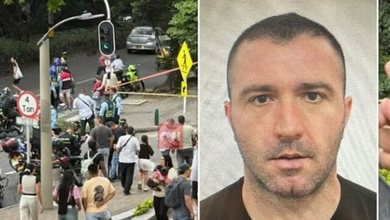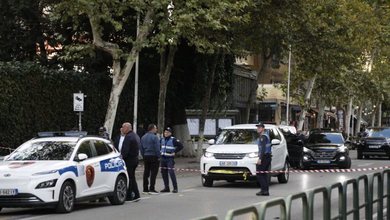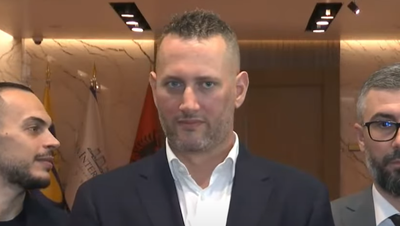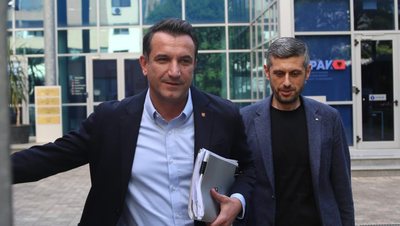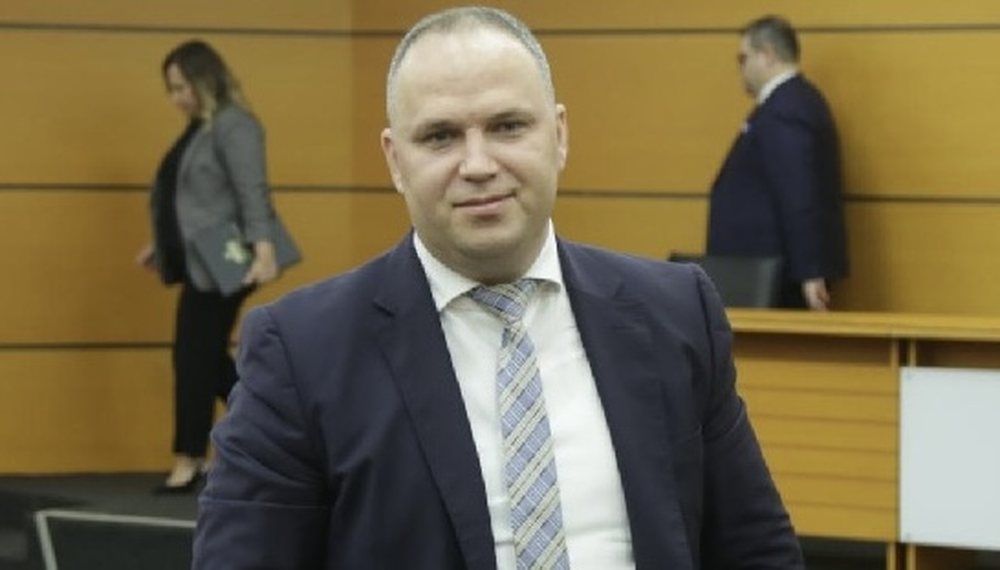
The President of the Special Court Against Corruption and Organized Crime, Erion Bani, after paying homage in honor of his colleague, Astrit Kalaja, who was killed in the courtroom at the Court of Appeals, stated that a judge cannot deliver justice if his life is not guaranteed.
"99 percent of courts (with the exception of the Special Court) do not meet the security requirements. Since all courts must be built from scratch to meet the requirements. We must understand that without security in the courts there can be no independence of the judge in giving a decision. If a judge is not calm in giving a decision, justice cannot be served. We must also understand something else, that when talking about the security of the courts, we are not only talking about the security of the judge. You understand that the judge is the one who makes the decision, but the actors are the prosecutor, the lawyer, the defendants, the journalists who are in the courtroom, the other parties and any other interested person. This should be a moment of reflection for everyone, because if there is no security in the court, even the simplest citizen feels at risk for his life."
He called on politics to finance the construction of new courts, as he emphasized that the judges' constant requests have fallen on deaf ears.
"The courts need to be built from scratch. To my knowledge, there have been continuous requests for new buildings and those who have the responsibility to provide funding, this is a moment of reflection that the courts cannot be left in this situation."
Bani stated that tomorrow at the General Meeting of Judges, security in the courts will be discussed, the risks that threaten judges, and the problems will be addressed to the competent bodies.
"This requires a deep analysis. After a deep analysis, which will be done tomorrow, after there will be a meeting of all judges of Albania, all the problems in the competent bodies will be discussed and addressed. It will be seen which competent body has not fulfilled its duty and further measures will be taken, in order for each of the actors to fulfill their obligations. It must start from the court, the court councils will also fulfill their duty and after fulfilling their duty, they will hold all institutions that have not fulfilled their obligations accountable," said Bani.
Regarding the lack of law enforcement in courtrooms, Bani said that the law requires police officers to guarantee the smooth conduct of trials, but the reasons why the bylaws have not been implemented are unclear.
"The Supreme Court has the competence and determines the general policies. Those who implement the policies are the law enforcement agencies. According to the legal framework in force, I believe you are aware that all courtrooms, since 2010, the bylaws state that they must have the presence of police forces to guarantee security. This is a fact. The reason why they have not been appointed will be discussed and addressed to the institutions that have competence for supervising security in the courts," said Bani.









